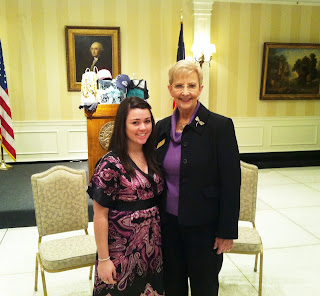 |
| Gretchen Rubin, Author |
Summary of "7 Tips for Avoiding Procrastination"
Here are the tips in simple list form:
1. Do it first thing in the morning
2. Try doing it every day
3. Have someone keep you company
4. Make preparations, assemble the proper tools
5. Commit
6. First things first (Don't push off big tasks with little ones)
7. Reflect on the great feeling you'll get when you've finished
Gretchen Rubin included more detailed descriptions of each tip, so I will simply summarize them.
Rubin's first tip is to do the task in the morning so that you don't have all day to list excuses. She says, "Do it now. Without delay is the easiest way."
Although doing the undesireable task every day may seem counterproductive, it actually helps. It helps because it leaves no room for confusion or "schedule juggling". If you know you have to do something everyday, you are more likely to do it.
Studies have shown that having someone to keep you company while doing the task makes it more enjoyable and keeps up moral.
Making preparations and assembling proper tools also make procrastination less likely. You are more likely to complete a task if your materials have been put together and prepared ahead of time.
Committing is Rubin's 5th tip. She says that, although cliche, it helps to write out your goals, no matter how short-term.
By first things first, Rubin means that bigger tasks should not be pushed off by little ones simply because the bigger ones are more time consuming. First things first.
Reflect on the great feeling you'll get when you've finished. Rubin says that studies show that reaching a goal releases chemicals in the brain that give you pleasure. You may not feel like completing a certain task, but you know you will feel much better about yourself once it is finished.
Overall, I personally found all of these tips very helpful. I happen to be a bit of a procrastinator myself. These tips by Gretchen Rubin have inspired me to get things done in a timely manor, hence finishing this assignment before the absolute deadline.





